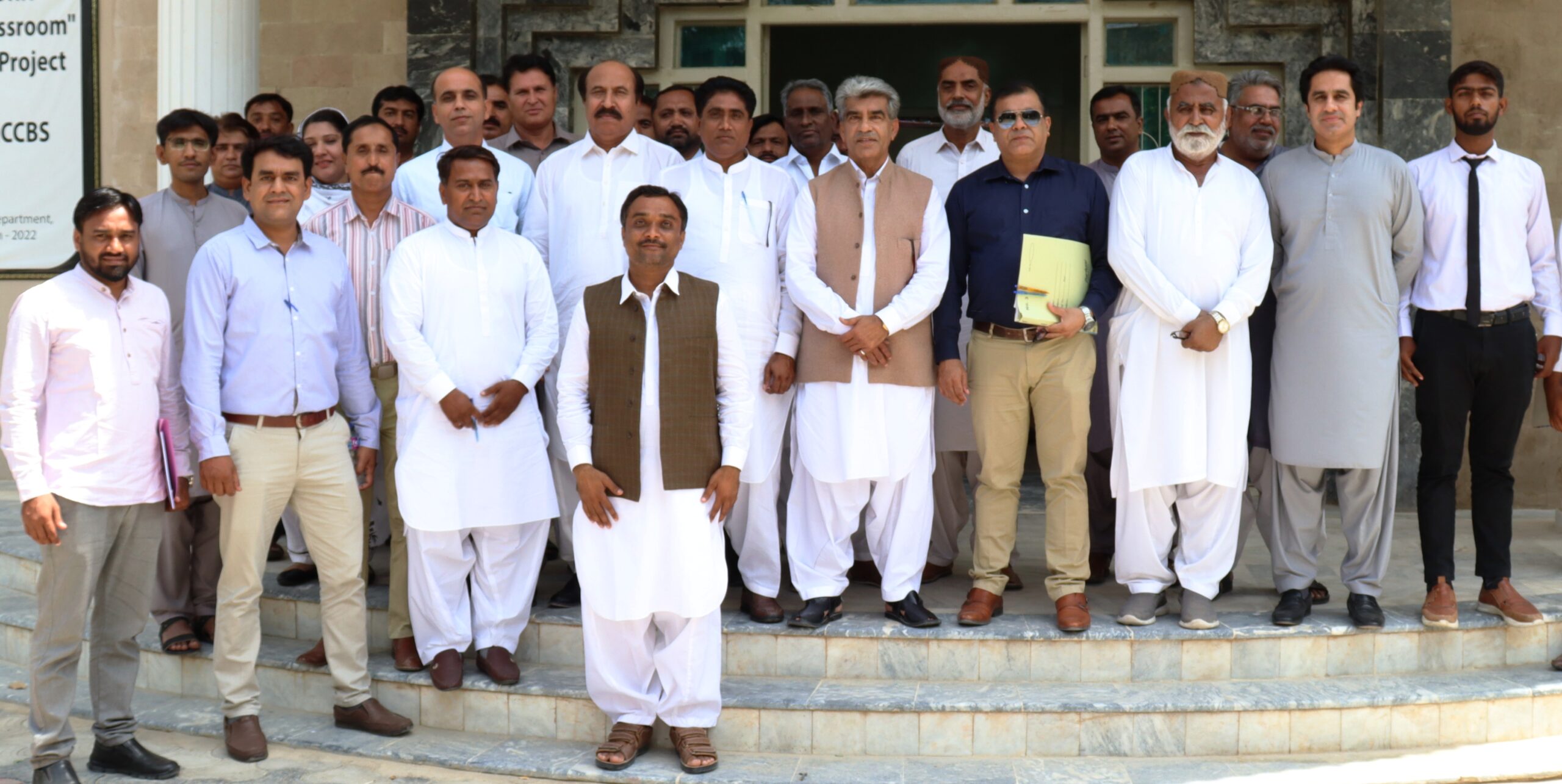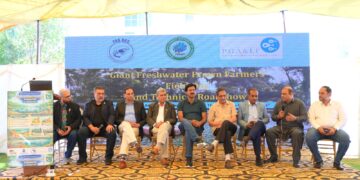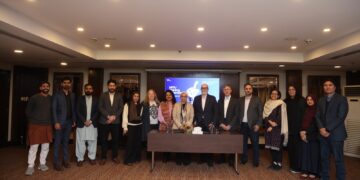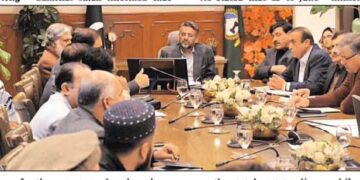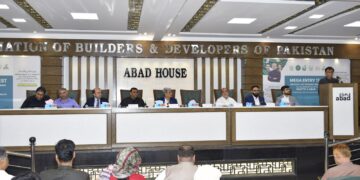Khairpur Pakistan – The Ph. D Open Defense Seminar was held in the Department of Zoology, Shah Abdul Latif University, Khairpur presided over by the Vice Chancellor Prof. Dr. Khalil Ahmed Ibupoto. Ph. D Research Scholar Syed Zafar Hussain Shah defended his research on the topic “Efficacy of Different Synthetic and Botanical Insecticides against Sucking Complex of Cotton Crop Under the field conditions at District Khairpur Sindh” under the supervision of Dr. Hakim Ali Sahito and co-supervision of Dr. Abdul Manan Shaikh.
Speaking on this occasion, Prof. Dr. Khalil Ahmed Ibupoto said that the topic of the research scholar is an indigenous one as result the growers of the cotton crop will be benefited from the recommendations of the scholar because Pakistan is agrarian country and the cotton is the prime crop of country. Dr. Ibupoto suggested that the recommendations may be communicated to the concerned quarters for implementation.
Research Scholar Syed Zafar Hussain Shah said that tested, synthetic and botanical insecticides especially scephat and Neem oil proved to be best in controlling the sucking incest pastes except for cotton milybug. He said my research proved that botanical insecticides were found better than the synthetic insecticides in increasing the weight of green balls of cotton and ultimately the production of cotton.
Prof. Dr. Abdul Hussain Shar, Dean Faculty of Natural Sciences, Dr. Shah Nawaz Khuhro, Associate Professor & Chairman Department of Entomology, Shaheed Zulfiqar Ali Bhutto Agriculture College, Dokri, Dr. Hadi Bux Bozdar, Associate Professor, Institute of Plant Sciences, University of Sindh, Jamshoro, Dr. Fakhra Soomro and Dr. Hakim Ali Sahito also shed light on the work of the scholar. They said that priority should be given to the botanical insecticides in the initial stage of infestation because these are cheaper and environment friendly.
Dr. Naveed Ahmed Shaikh, Director Postgraduate Studies conducted the proceedings of the seminar. The Open Defense Seminar declared as successful. A large number of faculty members and research scholars attended the seminar.





